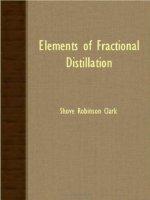Elements of algebra
Bạn đang xem bản rút gọn của tài liệu. Xem và tải ngay bản đầy đủ của tài liệu tại đây (26.1 MB, 638 trang )
I
V
1
111
01
!m''
(<
www.pdfgrip.com
^a^AINilJV^
Himm-o/:
^ojiiVDje^
)Hmoi
"^mm\\\[-l'N!\
AWHai]-#
LOS-ANGEi^j:
fa]AIN!i;iu
lOSANGtl,
V^i
www.pdfgrip.com
www.pdfgrip.com
www.pdfgrip.com
www.pdfgrip.com
ELEMENTS OF ALGEBRA,
LEONARD EULER,
TRANSLATED FKOM THE FRENCH;
WITH THE
NOTES OF M. BERNOULLI,
&c.
AND THE
ADDITIONS OF M. DE LA GRANGE.
FOURTH EDITION,
CAREFULLY REVISED AND CORRECTED.
BY THE REV. JOHN HEWLETT,
TO WHICH
^
i^Tcmoir of
^z
IS
B.D. F.A.S. &c.
PREFIXED,
%x\z aniy
(J^j^aractcr of iEuler,
BY THE LATE
FRANCIS HORNER,
ESQ., M. P.
LONDON
PRINTED FOR LONGMAN, REES, ORME, AND
PATERNOSTER-ROW.
1828.
www.pdfgrip.com
CO.
www.pdfgrip.com
M;
(i/jai
Sc. ,ices
1%^S
THIRD EDITION.
Having prefixed my name
of Euler's Algebra,
it
to the present edition
may be
account of the Translation
proper to give some
which I
;
the greater pleasure, because
vorable opportunity of associating
with those of
my
tical
first
my own
discovered
placed under
my
uncommon powers
thirst for
docility of temper,
which rendered
Horner, M. P.
tuition, at the cri-
of
intellect,
and the
knowledge, united with a
and a sweetness of
disposition,
instruction, indeed, a " delightful
His diligence and attention were such, as
to require the frequent interposition of
tional
labors,
and interesting age of seventeen, he soon
most ardent
task."
a fa-
distinguished pupil, and most
excellent friend, the late Francis
When
do with
shall
furnishes
it
amusement,
in
some
ra-
order to prevent the in-
tenseness of his apphcation from injuring a constitution,
which, though not delicate, had never
been robust.
Perceiving that
mind
the natural tendency of his
led to the exercise of reason, rather than to
the indulgence of fancy
;
— that he was particularly
interested in discussing the merits of
theory, in exposing fallacies,
and
some specious
in
forming
legi-
timate inductions, from any premises, that were
a 2
459399
www.pdfgrip.com
ADVERTISEMENT.
IV
\
supposed to rest on the basis of truth
led to
;
but
findin)
from imitation and habit, he had bee
also, that,
think
highly of those metaphysical
which abound
speculations,
annex no
too
distinct ideas,
in
terms to which
we
and which often require
the admission of principles, that are either unintelincapable of proof; I
ligible, or
his
notice Euler's
recommended
to
Algebra, as affording an ad-
mirable exercise of his reasoning powers, and the
best means of cultivating that talent for analysis,
close investigation,
and
logical inference,
which he
possessed at an early period, and which he after-
At
wards displayed in so eminent a degree.
same time,
the
was of opinion, that to translate a
I
work from the French into
English, when he wished to vary his studies, would
improve his knowledge of both languages, and be
the best introduction for him to the mathematics.
part of that excellent
He
was soon delighted with
this occasional
em-
ployment, which seemed to supply his mind with
food, that was both solid
and nutricious
;
and he
generally produced, two or three times a week, as
much
as I could find
time to revise and correct.
In the course of the
first
twelvemonth, he had
translated so large a portion of the
that
it
two volumes,
was determined to complete the whole, and
to publish
it
for the benefit of English students
but he returned to Scotland before the manuscript
was ready
for the press
of editing
it
I
;
and, therefore, the labor
necessarily devolved on me.
wished to give
this short history
www.pdfgrip.com
of the Trans-
M; tiiomatical
1^*"'.
My
THIRD EDITION.
Having
prefixed
of Elder's Algebra,
my name to
it
may be
account of the Translation
tical
first
^^
do with
a fa-
my own
labors,
distinguished pupil, and most
Horner, M.
excellent friend, the late Francis
When
I shall
furnishes
it
vorable opportimity of associating
my
<'
proper to give some
the greater pleasure, because
with those of
r!
the present edition
which
;
/
placed under
my
P.
tuition, at the cri-
and interesting age of seventeen, he soon
discovered
uncommon powers
most ardent
thirst for
of
intellect,
and the
knowledge, united with a
docility of temper, and a sweetness of disposition,
which rendered instruction, indeed, a " delightful
task."
His ddigence and attention were such, as
some
ra-
prevent the
in-
to require the frequent interposition of
;
tional
il
amusement,
in order
to
tenseness of his application from injuring a constitution, which,
though not
delicate,
had never
been robust.
Perceiving that
mind
>
the natural tendency
led to the exercise of reason, rather than to
the indulgence of fancy
;
— that he was particularly
interested in discussing the merits of
^
;^
l
^
of his
theory, in exposing fallacies,
and
in
some specious
forming
legi-
timate inductions, from any premises, that were
a 2
www.pdfgrip.com
www.pdfgrip.com
supposed to rest on
from imitation and
also, that,
led to
of
tlie basis
think
speculations,
annex no
too
higlily
liabit,
of tliose
which abound
distinct ideas,
Iriith
in
;
but findin
he had bee
metaphysical
we
terms to which
and which often require
the admission of principles, that arc either unintelincapable of proof; I
ligible, or
his
notice Euler's
recommended
to
Algebra, as affording an ad-
mirable exercise of his reasoning powers, and the
best means of cultivating that talent for analysis,
close investigation, and logical inference,
possessed at an early period,
which he
and which he
At
wards displayed in so eminent a degree.
same time,
I
after-
the
was of opinion, that to translate a
work from the French into
English, when he wished to vary his studies, would
improve his knowledge of both languages, and be
the best introduction for him to the mathematics.
He was soon delighted with this occasional employment, which seemed to supply his mind with
and he
food, thai was both solid and nutricious
part of that excellent
;
generally produced, two or three times a week, as
niuch as I could find time to revise and correct.
In the course of the
first
twelvemonth, he had
two volumes,
complete the whole, and
translated so large a portion of the
that
it
was determined to
to publish
it
for the benefit of English students
but he returned to Scotland before the manuscript
was ready
for the press
of editing
it
X
;
and, therefore, the labor
necessarily devolved on me.
wished to give
this short history
www.pdfgrip.com
of the Trans-
www.pdfgrip.com
V
ADVERTISEMENT.
lation at
racter
first,
and
without any eulogium on his cha-
talents,
while living, of course
modestly, though, at the same time,
opposed
it,
;
but he
resolutely
saying that whatever merit or emolu-
ment might be attached to the work, it belonged
to me.
The same proposal was made to him,
on publishing the second edition *
;
but he
still
persisted in his former determination.
From
the pleasure and instruction which he re-
ceived from Euler's Algebra,
him
wish to
to
it
was natural
know something more
of the
for
life
and character of that profound mathematician.
Having therefore
some measure
in
satisfied
and collected the necessary
curiosity,
his
materials,
by consulting the ordinary sources of information,
way of literary exercise, to draw
up a biographical Memoir on the subject. He
and this may
readily complied with my wishes
I
advised him, by
;
be considered as one of his earliest productions.
Its merits
writer
would do
credit, in
and therefore
;
reader will not
my
opinion, to any
appreciating them, the
in
deem any apology necessary on
account of the author's youth.
I
have been led into
stances,
first,
because
this short detail of
1
disdain the contemptible
vanity of shining in what
may be thought
rowed plumes, and because
pleasure
*
The
in
speaking of
my
I feel a
bor-
melancholy
highly valued, and
care of correcting the press for this edition was en-
trusted to Mr. P. Barlow, being
in
circum-
the laborious
engaged myself,
employment of editing the
Bible.
www.pdfgrip.com
at that lime,
MEMOIR
OF THE
AND CHARACTER OF EULER,
LIFE
BY THE LATE
FRANCIS HORNER,
ESQ., M. P.
Leonard Euler was the son of a clergyman
in
the neighbourhood of Basil, and was born on the
His natural turn for mathe-
15th of April, I707.
matics soon appeared, from the eagerness and
cility
fa-
with which he became master of the elements
under the instructions of his
father,
was sent to the university of Basil
There, his
abilities
and
his
by
whom
he
at an early age.
application were so
distinguished, that he attracted the particular notice
of John
Bernoulli.
That excellent mathe-
matician seemed to look forward to the youth's
future achievements
in
science,
while his
own
kind care strengthened the powers by which they
were to be accomplished.
his studies,
which
far
In order to superintend
outstripped the usual routine
of the public lecture, he gave him a private lesson
regularly once a
week
;
when they conversed
to-
gether on the acquisitions, which the pupil had
been making since
whatever
their last interview, considered
difficulties
might have occurred
www.pdfgrip.com
in his
EULER.
progress,
for the
IX
and arranged the reading and exercises
ensuing week.
Under such eminent advantages, the capacity
of Euler did not fail to make rapid improvements ;
and
degree of Master
in his seventeenth year, the
On
of Arts was conferred on him.
he received high applause
discourse, the subject of
this occasion,
his probationary
for
which was a comparison
between the Cartesian and Newtonian systemg.
His
father,
having
along intended him for
all
his successor, enjoined
him new
to relinquish his
mathematical studies, and to prepare himself by
those of theology, and general erudition, for the
After some time, however,
ministerial functions.
had been consumed,
this plan
man of
own views
was given up.
The
father, himself a
learning and liberality,
^abandoned
for those, to
inclination
his
and
were of them-
talents of his son
selves so powerfully directed
;
which the
persuaded, that in
thwarting the propensities of genius, there
sort
of impiety against nature,
would be
real injustice to
is
a
and that there
mankind
in
smothering
those abilities, which were evidently destined to
Leonard was
extend the boundaries of science.
permitted, therefore, to resume his favorite pursuits;, and, at the age of nineteen, transmitting
two
dissertations to the
Paris,
Academy
one on the masting of
of Sciences at
ships,
and the other
on the philosophy of sound, he commenced that
splendid career, which continued, for so long a
period, the admiration
About the same
and the glory of Europe.
time, he stood candidate for a
www.pdfgrip.com
X
EULER.
vacant professorship in the university of Basil
but having
lost the election,
he resolved,
in con-
sequence of
this disappointment, to leave his na-
tive country
;
and
in
1727 he
set
out for Peters-
burg, where his friends, the young Bernoullis, had
about two years before, and where he
settled
flattered himself with prospects of literary success
under the patronage of Catherine
spects, however,
nor was
it
were not immediately realised
after
till
Those pro-
I.
he had been frequently and
long disappointed, that he obtained any prefer-
His
ment.
to
the
first
chair
appointment appears to have been
of natural philosophy
;
and when
Daniel Bernoulli removed from Petersburg, Euler
succeeded him as professor of mathematics.
In this situation he remained for several years,
engaged
in the
most laborious researches, enrich-
ing the academical collections of the continent
with papers of the highest value, and producing
almost daily improvements in the various branches
of physical,
science.
and,
more
particularly,
analytical
In 1741, he complied with a very press-
ing invitation from Frederic the Great, and re-
Throughout this period, he continued the same literary labors, directed by the same wonderful sagacity and comsided at Berlin
prehension of
own
till
I766.
intellect.
discoveries
As he advanced with
and inventions, the
field
of know-
ledge seemed to widen before his view, and
subjects
tion.
still
The
his
new
multiplied on him for further specula-
toils
of intense study, with him, seemed
only to invigorate his future exertions.
www.pdfgrip.com
Nor
did
EULER.
the energies of Euler's
XI
mind give way, even when
body were overpowered
the organs of the
:
for in
the year 1735, having completed, in three days,
which the
certain astronomical calculations,
demy
called for in haste
aca-
but which several ma-
;
thematicians of eminence had declared could not
be performed within a shorter period than some
months, the intense application threw him into a
fever, in
which he
of one eye.
lost the sight
Shortly after his return to Petersburg, in I766,
he became totally blind.
however, suffered
His passion for science,
no decline
;
the powers of his
mind were not impaired, and he continued
Though
defatigable as ever.
likewise were
had passed
latter period
pain,
his
and
now crowding
loss
of his
the distresses of age
fast
his sixtieth year
;
upon him,
yet
under
life,
as in-
it
for
was in
he
this
infirmity, bodily
of sight, that he produced some of
most valuable works
;
such as
command our
astonishment, independently of the situation of
the author, from the labor and originality which
they display.
In
fact,
his
habits
of study and
composition, his inventions and discoveries, closed
only with his
died, he
life.
The very day on which he
had been engaged
in calculating the orbit
of Herschel's planet, and the motions of aerostatic
machines.
His death happened suddenly in Sep-
tember 1783, from a
fit
of apoplexy,
when he was
in the seventy-sixth year of his age.
Such
The
is
the short history of this illustrious man.
incidents of his
life,
like that
www.pdfgrip.com
of most other
EULER.
Xll
laborious students, afford very scanty materials for
biography
little
;
more than a journal of
and a catalogue of publications
find
ample compensation
ter of his
mind.
An
studies
but curiosity
:
surveying the charac-
in
object of such magnitude,
so far elevated above the ordinary range of
intellect,
may
human
cannot be approached without reverence,
nor nearly inspected, perhaps, without some de-
Should an apology be ne-
gree of presumption.
attempting the following
therefore, for
cessary,
estimate of Euler's character, let
that
we
it
be considered,
can neither feel that admiration, nor offer
that homage, which
is
worthy of genius, unless,
aiming at something more than the dazzled sensations of
mere wonder, we subject
amination, and compare
it
human nature in general.
Whoever is acquainted
those great men, to
whom
it
to actual ex-
with the standards of
with the memoirs of
the
human
race
is
in-
debted for the progress of knowledge, must have
perceived, that, while mathematical genius
excellence,
versity.
it
The
so extensive
it is
di-
from the other departments of intellectual
stinct
times,
is
likewise admits in itself of
and so various,
and present
so
many
natural for a person,
cast, to
especially in
di-
become
modern
interesting aspects, that
whose
talents are of this
devote his principal curiosity and attention
to particular views of the science.
pens, the faculties of the
facility
much
subjects of its speculation are
When
mind acquire
this hap-
a superior
of operation, with respect to the objects
www.pdfgrip.com
EULER.
XIU
towards which they are most frequently directed,
and the invention becomes habitually most active
and most acute
The
in that channel of inquiry.
truth of these observations
by the character of Euler.
illustrated
and discoveries lay not among the
strikingly
is
His studies
lines
and
figures
of geometry, those characters, to use an expression of Galileo in
which the great book of the
universe
;
written
is
had a turn
nor does he appear to have
by experiment, and
for philosophising
advancing to discovery through the rules of
ductive investigation.
The
dehghted
was that of pure
He
to speculate,
surveyed
region,
the properties
and
in
in-
which he
intellect.
affections
quantity under their most abstracted forms.
of
With
the same rapidity of perception, as a geometrician
ascertains the relative position of portions of extension,
Euler ranges among those of abstract quan-
tity,
unfolding their most involved combinations,
and tracing
their
most
intricate proportions.
That
admirable system of mathematical logic and language, which at once teaches the rules of just
and furnishes an instrument
inference,
for prose-
cuting deductions,
free
from the defects which
obscure and often
falsify
our reasonings on other
subjects
;
the different species of quantity, whether
formed in the understanding by
tions, or derived
its
own
abstrac-
from modifications of the repre-
sentative system of signs
;
the investigation of the
various properties of these, their laws of genesis,
the
limits
of comparison
among
www.pdfgrip.com
the
different
EULER.
XIV
and the method of applying
species,
solution of physical problems
searches on which the
;
all this
to the
these were the re-
mind of Euler delighted
to
which he never engaged without
dwell,
and
in
finding
new
objects of curiosity, detecting sources
of inquiry, which had passed unobserved, and exploring fields of speculation and discovery, which
before were unknown.
The
subjects,
merated, form,
which we have here
when taken
Modern Analysis
the
:
together,
slightly enu-
what
is
called
a science eminent for the
profound discoveries which
it
has revealed
;
for
the refined artifices that have been devised, in
order to bring the most abstruse parts of mathematics within the compass of our reasoning powers,
and
for applying
phfenomena,
them
to the solution of actual
as well as for the
remarkable degree
of systematic simplicity, with which the various
methods of investigation are employed and combined, so as to confirm and throw light on one
The
another.
materials,
lecting for years,
indeed,
had been
col-
from about the middle of the
seventeenth century
;
the foundations had been
by Newton, Leibnitz, the elder BernouUis,
and a few others but Euler raised the superstruc-
laid
;
was reserved for him to work upon the
materials, and to arrange this noble monument of
ture
:
it
luiman industry and genius in
metry.
labors, the ultimate
he
its
present sym-
Through the whole course of his
set his
scientific
and the constant aim on which
mind, was the perfection of Calculus
www.pdfgrip.com
XV
EULER.
Whatever physical inquiry he be-
and Analysis.
gan with,
always came in view, and very
this
fre-
quently received more of his attention than that
which was professedly the main
subject.
His
ideas ran so naturally in this train, that even in
met with images
that would recall the associations of his more familiar studies, and lead him back, from the fairy
the perusal of Virgil's poetry, he
scenes of fiction, to mathematical abstraction, as
to the element,
most congenial to
his nature.
That the sources of analysis might be ascertained
in their full extent, as well as the various modifica-
tions of
form and restrictions of rule that become
necessary in applying
nature
it
to
different
he appears to have nearly gone through a
;
complete course of philosophy.
rational mechanics,
The
theory of
the whole range of physical
astronomy, the vibrations of elastic
the movements
as
views of
fluids, as
of those which
pressible, naval architecture
and
trine of chances, probabilities,
are
tactics,
and
well
incom-
the doc-
political arith-
metic, were successively subjected to the analytical
method
;
and
all
these sciences received from
fresh confirmation
It cannot
tention
*
A
is
him
and further improvement*.
be denied
that,
in general,
more occupied with the
complete edition of
his works,,
his at-
analysis itself,
comprising the numerous
papers which he sent to the academies of St. Petersburg,
Berlin, Paris,
and other public
on Curves, the Analysis of
Calculus, &c.
societies, his separate Treatises
Infinites, the differential
would occupy,
and integral
at least, forty quarto volumes.
www.pdfgrip.com
XVI
EULER.
than with the subject to which he
applying
is
and that he seems more taken up with
it;
his instru-
ments, than with the work, which they are to assist
him in executing. But this can hardly be made a
ground of censure, or regret, since it is the very
circumstance to which we owe the present perfection of those instruments
a perfection to which
;
he could never have brought them, but by the unremitted
and enthusiastic preference
attention
which he gave
If he
to his favorite object.
now
and then exercised his ingenuity on a physical, or
perhaps metaphysical, hypothesis, he must have
been aware, as well
as
any one, that
his conclusions
would of course perish with that from which they
were derived. What he regarded, was the proper
means of arriving
at those conclusions
;
the
new
views of analysis, which the investigation might
open
it
;
and the new expedients of calculus, to which
might eventually give
form pursuit
;
all
This was his uni-
birth.
other inquiries were prosecuted
with reference to
it
;
and
in
this
consisted the
peculiar character of his mathematical genius.
The
faculties that are subservient to invention
he possessed
in a
memory was
at
very remarkable degree.
His
once so retentive and so ready,
that he had perfectly at command
all
those nu-
merous and complex formulae, which enunciate
the rules and more important theorems of analysis.
As
the
is
reported of Leibnitz, he could also repeat
^neid from beginning
to
end
trust his recollection for the first
www.pdfgrip.com
;
and
and could
last lines in
XVll
EULER.
every page of the edition, which he had been ac-
These are instances of a kind
of memory, more frequently to be found where
customed to
use.
the capacity
is
accompanying
than
But
inferior to the ordinary standard,
seem to have been not so much
of natural constitution, as of his most
in Euler, they
the result
wonderful attention
dence,
is
is
we
con-
sufficient
evi-
a faculty, which, if
;
testimony of
sider the
It
genius.
scientific
original,
Newton *
the great constituent of inventive power.
that complete retirement of the
itself,
during which the senses are
that intense meditation, on
idea can intrude
;
mind within
locked up
which no extraneous
that firm, straight-forward pro-
no
gress of thought, deviating into
irregular sally,
which can alone place mathematical objects in a
them
light sufficiently strong to illuminate
fully,
and preserve the perceptions of " the mind's eye"
in the
same order that
Two
it
moves along.
M.
of Euler's pupils (we are told by
himself)
a pupil
had
calculated
term
series as far as the seventeenth
on comparing the written
results,
this
difference
to
;
but found,
that they dif-
fered one unit at the fiftieth figure
municated
Fuss,
a converging
:
they com-
their master,
who
went over the whole calculation by head, and his
For the
decision was found to be the true one.
—
purpose of exercising his
extraction of roots, he has been
* This
opinion
grandson in the
little
known
of Sir Isaac Newton
is
to
recorded by Dr.
Pemberton.
b
www.pdfgrip.com
form to
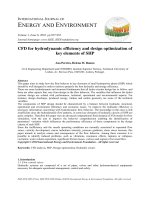


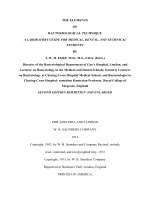

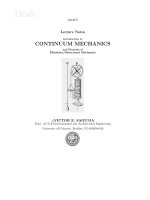
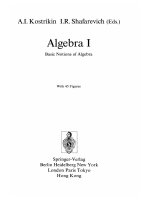
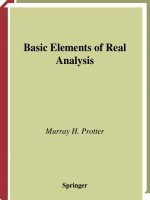
![scott fogler - elements of chemical reaction engineering [3rd ed.]](https://media.store123doc.com/images/document/14/ri/ii/medium_Z7Fj1umpAL.jpg)
